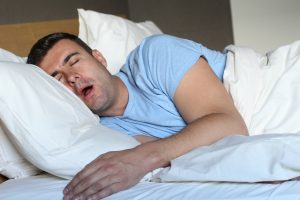
No oral health topic is more intimate or emotionally sensitive than the issue of adult drooling. If you’re dealing with this condition, then discussing it may be the last thing you want. Still, your
dentist in Allentown might have treatment options that can help. Why not make an appointment to see him or her today?
Causes of Adult Drooling
Most instances can be traced back to one or more of these causes:
- An inadequate sleeping position or sleep surface. When you rest, your mouth, eyelids, and other parts of your face may rub against your pillow or mattress. This can cause a variety of problems, including drooling.
- Clogged or inflamed sinuses. Breathing through the mouth may allow saliva to escape.
- Side effects of certain medications. Your physician, dentist or pharmacist can give you more information on this subject.
- Stroke or other neurological events. These can affect the nerves or inhibit muscular control in areas throughout the body.
- Ongoing conditions such as Parkinson’s.
- Overproduction of saliva due to hereditary or lifestyle factors.
The good news is that most cases of adolescent or adult drooling can be managed or even resolved entirely.
Treating Adult Drooling
The first step is to see your dentist or other healthcare professional. He or she will perform an examination, arrive at a formal diagnosis, and suggest treatment options. These may include:
- Trying a different pillow, mattress, or sleep position. Elevated beds and wedge pillows are often helpful. Sleeping on your back might also provide relief. In some cases, your dentist may authorize a sleep study.
- Changing medications or altering dosages. You should never try either of these approaches without your healthcare professional’s guidance. Self-adjusting medicines can have serious repercussions for your health.
- Seeing a speech or physical therapist. Sometimes specific exercises can correct the underlying cause of drooling.
- Wearing an oral appliance. These devices may help with tongue and lip conditions and aid with swallowing.
- Using prescription compounds. Some medicines can enhance nerve and muscle control.
- Receiving facial injections. Botox® and similar products often provide some relief.
- Undergoing surgery. This option is usually employed only after other approaches have failed. Still, it may be the best option for remedying the condition.
Treating physical symptoms is only part of the answer. Drooling often has psychological components that require addressing as well. Ways to help with these factors include:
- Private counseling. Talking to a caring professional may open up new avenues for viewing your condition and managing its impact on your well-being.
- Support groups. Sharing your thoughts and feelings with people who can relate to your experiences can make a real difference in how you deal with an issue.
- Anti-anxiety or anti-depressant medicines. These can help to manage the unease that often accompanies drooling or other medical concerns.
Talk to your family dentist in Allentown about these options during your appointment. Facing personal challenges with a positive and affirming attitude is one key to living a happier, more fulfilling life. We wish you nothing but bright days and happy smiles in the days and years to come.
About the Author
Dr. Mark Enea is a graduate of Temple University School of Dentistry and a member of the American Dental Association. He’s known for his caring approach and commitment to patient education. You can reach his office
online or by calling (610) 439-1363.
 No oral health topic is more intimate or emotionally sensitive than the issue of adult drooling. If you’re dealing with this condition, then discussing it may be the last thing you want. Still, your dentist in Allentown might have treatment options that can help. Why not make an appointment to see him or her today?
No oral health topic is more intimate or emotionally sensitive than the issue of adult drooling. If you’re dealing with this condition, then discussing it may be the last thing you want. Still, your dentist in Allentown might have treatment options that can help. Why not make an appointment to see him or her today?
